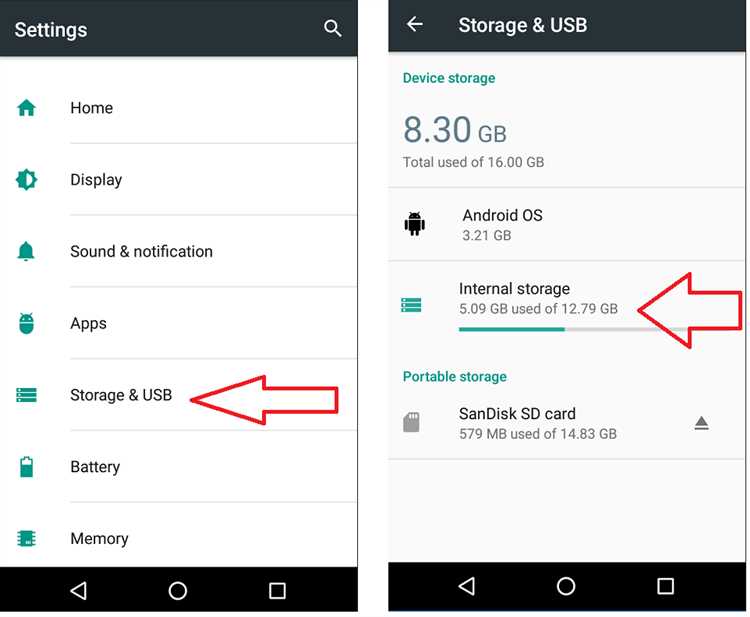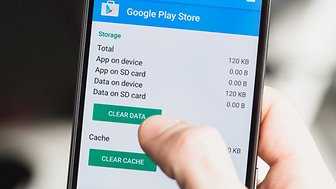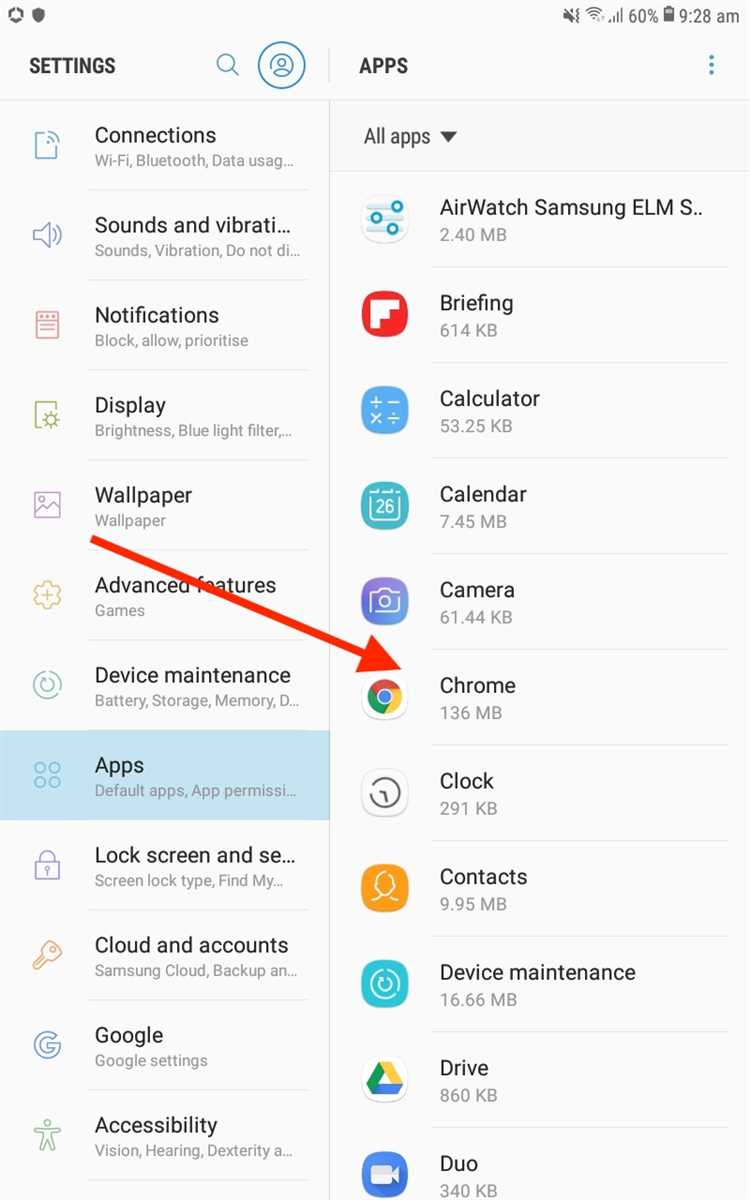In today’s digital age, most of us rely heavily on applications to store and process our personal information. From social media platforms to banking apps, these programs collect and store a significant amount of data about us. While it’s convenient to have everything in one place, it also raises concerns about privacy and security. Many users wonder if it is safe to clear data on apps and what the implications might be.
Clearing data on apps refers to the process of deleting all the information that an app has stored on your device. It includes everything from login credentials and personal settings to cached files and browsing history. This action can be useful in various situations, such as troubleshooting app issues or reclaiming storage space on your device.
However, before you go ahead and clear data on an app, it’s essential to understand the potential consequences. Clearing app data will typically log you out of the app and delete any custom settings or preferences you have made. It may also lead to the loss of locally stored files or data that have not been synced to the cloud. Additionally, clearing data on certain apps may require you to re-download or reconfigure the app.
When it comes to the safety of clearing data on apps, it largely depends on the specific app and your personal circumstances. For apps that heavily rely on cloud storage and syncing, such as social media or productivity apps, clearing data usually doesn’t pose a significant risk. However, for apps that store sensitive or critical information locally, such as banking or password management apps, it’s crucial to proceed with caution and ensure you have backup plans in place.
In this comprehensive guide, we will explore different scenarios for clearing data on apps, discuss the potential risks and benefits, and provide practical tips to help you make informed decisions. By understanding the implications and taking necessary precautions, you can safely clear data on apps without compromising your privacy or security.
The Importance of Clearing Data on Apps
Clearing data on apps is an essential practice that can help improve the performance and security of your device. Whether you use a smartphone, tablet, or computer, clearing data on apps can have several benefits.
1. Enhanced Performance:
Over time, apps accumulate a lot of data, such as cached files, cookies, and temporary files. This data can take up precious storage space and slow down the app’s performance. By clearing this data, you free up storage and allow the app to run smoothly.
2. Improved Privacy:
When you use apps, they often collect various types of data, including your personal information, browsing history, and location data. Clearing the app’s data can help protect your privacy by removing this sensitive information from your device.
3. Fixing App Issues:
Sometimes apps may encounter issues or glitches due to corrupt data or conflicts with other apps. Clearing the app’s data can help resolve these issues by resetting the app to its default settings.
4. Managing Storage:
As apps continue to accumulate data, it can consume a significant amount of storage on your device. Clearing data on apps allows you to manage your device’s storage effectively, ensuring that you have enough space for other important files and apps.
5. Updating App Preferences:
When you clear data on an app, it resets all the preferences and settings associated with that app. This can be useful if you want to start fresh or if you have encountered difficulties with the app’s configuration.
6. Security:
Clearing data on apps can help protect your device from security threats. When you uninstall an app, some data may remain on your device, including login details and cached files. Clearing the app’s data ensures that no sensitive information is left behind, reducing the risk of unauthorized access.
In conclusion, clearing data on apps offers significant benefits such as enhanced performance, improved privacy, issue resolution, storage management, updated app preferences, and increased security. It is a simple yet effective step that can help you maintain a clean and efficient device.
Understanding the Types of Data Stored in Apps
When you use an app on your phone or computer, data is being collected and stored to enhance your user experience. It’s important to have a clear understanding of the types of data that can be stored in apps, as this knowledge can help you make informed decisions about clearing data.
1. Personal Information:
- Your name, email address, and contact information
- Payment details and transaction history
- Photos and videos
- Social media usernames and passwords
2. Usage Information:
- App usage history
- Number of times the app has been opened
- Duration of app usage
- Interaction with specific features
3. Location Data:
- Your current location
- Location history
- Places you have visited
4. Device Information:
- Device ID
- Operating system
- Network information
- Battery usage
5. Cookies and Tracking Information:
- Website cookies
- Advertising IDs
- Tracking pixels
- Browser history
6. App Preferences and Settings:
- Language preferences
- Notification settings
- Customization options
7. App-Generated Content:
- Messages and chats
- Comments and reviews
- Uploaded files
It’s important to note that not all apps collect or store all types of data mentioned above. The data stored in an app may vary depending on its purpose and functionality. Additionally, some apps may encrypt or anonymize certain types of data for privacy and security purposes.
Understanding the types of data stored in apps can help you assess the potential impact of clearing app data. It’s always a good idea to review an app’s privacy policy and settings before deciding to clear its data, as some data may be necessary for app functionality or personalization.
The Potential Risks of Clearing Data on Apps
Clearing data on apps can be a useful way to free up storage space or to resolve issues with app performance. However, it is important to be aware of the potential risks that come with this action. Here are some potential risks of clearing data on apps:
- Data Loss: One of the main risks of clearing data on apps is the loss of important data. Clearing app data will delete all stored information, including login credentials, app preferences, and any personalized settings. If you haven’t backed up this data, you may lose it permanently.
- Loss of App Functionality: Clearing data on apps can sometimes result in the loss of certain functionality. Some apps rely on stored data to function properly, and deleting this data may cause the app to malfunction or lose certain features.
- Reconfiguration Required: After clearing app data, you may need to reconfigure the app settings. This can be time-consuming, especially if you have customized the app extensively or have multiple accounts logged in.
- Sign Out from Accounts: Clearing data on certain apps may sign you out from your accounts. This means you’ll have to log in again, which can be an inconvenience, especially if you have forgotten your login credentials.
- Re-download or Reinstall: In some cases, clearing app data may require you to redownload or reinstall the app. This can be problematic if you have a slow internet connection or if you are unable to reinstall the app due to compatibility issues.
It is important to weigh the potential risks and benefits before clearing data on apps. If you do decide to proceed with clearing data, make sure to back up any important information beforehand and be prepared for the potential consequences.
Benefits of Clearing Data on Apps Regularly
Clearing data on apps regularly can provide several benefits, including:
-
Improved Performance:
Over time, apps accumulate a large amount of data, such as cached files, logs, and temporary files. Clearing this data can help free up storage space and improve the performance of the app. It can reduce lag and make the app run faster, especially on devices with limited storage capacity.
-
Reduced Storage Usage:
By clearing data on apps, you can reclaim valuable storage space on your device. This can be particularly beneficial if you have a device with limited storage capacity or if you frequently use apps that store a large amount of data, such as social media or photo editing apps.
-
Privacy Protection:
Clearing data on apps can help protect your privacy by removing sensitive information stored within the app. This includes login credentials, browsing history, and any personal data that may have been stored or cached by the app. Clearing this data can help prevent unauthorized access to your personal information.
-
Troubleshooting:
If you’re experiencing issues with an app, clearing its data can often resolve the problem. Clearing data can remove any corrupted files or settings that might be causing the app to malfunction. It’s a useful troubleshooting step that can save you from having to uninstall and reinstall the app.
-
Customization:
Clearing data on apps can give you a fresh start with the app, allowing you to customize it again from scratch. This can be useful if you want to reset the settings, preferences, or personalized data within the app. It can help you start anew and make the app feel more personalized to your current needs.
Overall, regularly clearing data on apps can help improve performance, free up storage space, protect your privacy, troubleshoot issues, and provide a fresh start for customization. It’s a simple maintenance task that can have a significant impact on your app experience.
How to Safely Clear Data on Apps
Clearing data on apps can be a helpful practice to free up storage space on your device and improve app performance. However, it’s important to do it safely to avoid any negative consequences. Here are some steps to safely clear data on apps:
- Backup your data: Before clearing data on an app, it’s a good idea to backup any important data associated with that app. This can include documents, photos, or any other files that you don’t want to lose.
- Open the app settings: To clear data on an app, go to your device’s settings and find the “Apps” or “Applications” section. Look for the specific app you want to clear data for and tap on it.
- Clear app cache: In the app settings, you may see an option to clear the app cache. This will delete temporary files and data that the app has stored on your device. Clearing the cache can help free up some space without affecting your app settings or personal data.
- Clear app data: If clearing the app cache didn’t solve your storage issues, you can proceed to clear the app data. This will delete all saved data for that app, including login information, preferences, and other user-generated content. It’s important to note that clearing app data will essentially reset the app to its initial state.
- Restart the app: After clearing the app data, it’s a good practice to restart the app. This will allow it to start fresh and recreate any necessary files or folders it needs to function properly.
- Check for app updates: Once you have cleared the data on an app, it’s a good idea to check for any available updates. App updates may include bug fixes or performance improvements that can enhance your overall experience.
- Reconfigure app settings: If the app you cleared data for requires login credentials or any specific settings, you will need to reconfigure them after clearing the data. Make sure to remember any necessary login information or preferences before proceeding with the data clearing process.
By following these steps, you can safely clear data on apps without losing any important data or causing any potential issues. However, it’s always a good idea to exercise caution and be aware of any potential risks before clearing data on any app.
Best Practices for Clearing Data on Apps
Clearing data on apps can be a useful way to free up storage space, improve performance, and protect your privacy. However, it’s important to follow best practices to ensure that you are clearing data safely and effectively. Here are some tips to keep in mind:
- Know what you’re clearing: Before clearing data on an app, make sure you understand what data will be deleted. Some apps store important information such as documents, settings, or login credentials that you may want to keep.
- Create backups: If you have any important data stored within an app, it is a good idea to create backups before clearing data. This way, you can restore the data if needed.
- Clear cache regularly: Clearing the cache can help improve app performance by removing temporary files that may be taking up space. It’s a good practice to clear the cache regularly to keep your device running smoothly.
- Consider app settings: Some apps have settings that allow you to control what data is stored and how it is cleared. Take the time to explore these settings and customize them based on your preferences and needs.
- Be cautious with clearing app data: While clearing app data can help with storage and performance, it may also delete important information such as user preferences or personalized settings. Always double-check what data will be cleared before proceeding.
- Use built-in app options: Most apps have built-in options to clear data or cache. It is generally recommended to use these options instead of third-party apps, as they are specifically designed for the app and are likely to be more reliable.
- Stay updated: Keep your apps and the operating system up to date. Updates often include bug fixes, security patches, and performance improvements that can help optimize app data management.
- Consider factory reset as a last resort: If you are experiencing persistent issues with an app and all other troubleshooting steps have failed, a factory reset may be a last resort option. However, be aware that a factory reset will erase all data on your device, so be sure to back up important information beforehand.
Following these best practices will help you make informed decisions when clearing data on your apps. Remember to always prioritize the safety and security of your data, and if in doubt, seek professional assistance.
Common Misconceptions about Clearing Data on Apps
Clearing data on apps is a common practice among users to free up storage space and improve app performance. However, there are some common misconceptions about this process that we need to address.
- Clearing data will delete the app: Many people believe that clearing data will uninstall the app from their device. This is not true. Clearing data only removes the app’s temporary files and resets the app to its default settings. The app itself remains installed on the device.
- Clearing data will delete important data: Another misconception is that clearing data will delete important data such as photos, videos, or documents. However, clearing data only removes app-specific data, such as login credentials, preferences, and cached files. Personal files and data stored outside the app will not be affected.
- Clearing data will improve app performance: While clearing data can help improve app performance in some cases, it is not a guaranteed solution. App performance issues can be caused by various factors, and clearing data may not always solve the problem. Other troubleshooting steps may be required to address performance issues.
- Clearing data is the same as clearing cache: Clearing data and clearing cache are two different processes. Clearing cache removes temporary files stored by the app, while clearing data resets the app to its default state. Clearing cache can help free up storage space, but it may not solve all app-related problems.
In conclusion, clearing data on apps is a useful practice, but it is important to understand its limitations and dispel any misconceptions. It is always recommended to back up important data before proceeding with any app-related changes to avoid any potential data loss.
FAQ:
What does it mean to clear data on apps?
Clearing data on apps means deleting all the information that the app has stored on your device. This includes settings, preferences, login credentials, and any other data that the app has accumulated over time.
Why would someone want to clear data on apps?
There are several reasons why someone would want to clear data on apps. It can help free up storage space on the device, improve app performance, and resolve any issues or glitches that may be occurring. It can also be used as a privacy measure to remove personal data from the app.
Is it safe to clear data on apps?
Yes, clearing data on apps is generally safe. However, it is important to note that clearing data will remove all app settings and preferences, including login credentials. So, if you clear data on an app, you will have to set it up again and log in if necessary. Additionally, any unsaved data or progress within the app will be lost, so it’s important to backup any important information before clearing data.
How can I clear data on apps?
The process of clearing data on apps may vary slightly depending on the device and operating system you are using. Generally, you can go to the “Settings” menu, then choose “Apps” or “Applications”, find the specific app you want to clear data for, and then select “Clear data” or “Clear storage”. Make sure to double-check before clearing data to ensure you are only deleting the data for the specific app you want.


